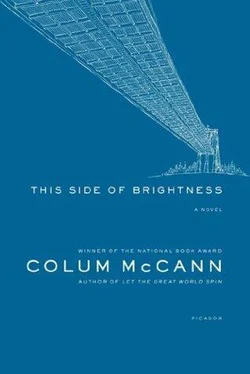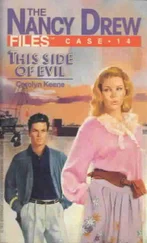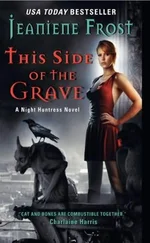Most of his time is spent sitting by the window, watching his ten-year-old grandson, Clarence Nathan, playing alone in an empty lot across the street.
Sometimes, in the apartment, Louisa dances. Walker turns the couch to face the center of the room, tightens a blanket over his legs, balances a teacup on the arm of the couch. Clarence Nathan also watches — his mother’s arms stretched out to an unvoiced song and her feet going back and forth delicately as Walker’s big guffaws mix in with the city’s sirens. She tucks her head to her chest, as if into a wingpit. Lifts it up again. Arms moving up against a heavy air, she seems ready for the sky, a chimera of movement and geometry. But Walker has noticed changes in the rhythms in recent years. From his position on the soft cushions, he has seen Louisa’s movements clang toward a certain jerkiness, a loss of control. Tall and long-legged, she has developed the look of something wounded. Her arms don’t quite stretch out as they used to. Her feet are not as lyrical. Her breathing is jerky. The primitive rawness is less than it once was, and she has lost something in the way she spins; there is often a temporary stumble on the lip of the carpet, as if her fluidity has siphoned itself down into the tequila, where Louisa searches for it. A bottle and a half a day. In the morning she stumbles out of bed and goes straight to the cupboard, doesn’t even wince at the first sip. She loves to peel the labels halfway off, scraping them with her fingernails. Sometimes she hides in the bathroom for hours, comes out with the bottle empty.
Louisa wears a row of seashells at her neck, strung together on a piece of white twine. The shells jangle when she moves. She always says she feels a little dizzy, that a doctor has given her pills to help cure the problem. She swallows the pills in handfuls and they keep her awake for long stretches. She goes to late-night clubs, arrives home frenzied, her hair unthreading as she tosses in the single bed beside her son. In the afternoons, she wakes only to give a cursory kiss to the boy, then falls back silent on the bed.
A litany of men calls at the door and Walker has noticed — with a thickening sense of shame — the rise of her skirts high on her thighs.
Things have begun to go missing from the apartment: a vase, a soupspoon, a picture frame but not the picture.
“Y’all seen Clarence’s frame?” Walker asks her. “He looks mighty naked without it.”
“Haven’t seen it anywhere,” she says.
“Wouldn’t happen to be in the pawnshop?”
“’Course not. What you think I am, a thief?”
“Take it easy, girl. Y’all know I don’t think that.”
“You saying I soaked his frame?”
“’Course not,” says Walker. “I’m sorry. Just shooting my mouth off. Don’t mind me.”
“After all I do around here? Cook and clean. Keep you near your grandson. You know, I could live anywhere I want. And you tell me I’m a thief?”
“I was just wondering about the frame.”
“Well, don’t wonder.”
“Hey,” says Walker after a moment, “d’y’all ever think about what might be growing in the place of Clarence’s eyeball?”
“What?”
“His eyeball. I mean, what sort of plant? In Korea. I mean, that’s what he said long ago, wasn’t it? That something might grow there in that place.”
“You got a fever or something, Nathan? I’ve no idea what you’re talking about. All I hear from you these days is things that don’t make any goddamn sense.”
“Don’t cuss in front of the boy.”
“I’ll curse if I want.”
“Sometimes I think it may be a big American oak.”
“No such thing as an American oak,” she says.
“Or a chestnut tree or something.”
“No chestnuts in Korea.”
“Maybe a maple.”
She turns away. “I’m going out for a while.”
“Where you going to now?”
“Just out.”
“Watch that skirt don’t disappear altogether. You’ll be whistling down the street. They’ll hear you coming around the corner.”
“Funny funny.” And then she sighs. “Will you look after Claren?”
“Holy Name,” says Walker.
“Well?”
“Y’all know I always look after the boy.”
“Thanks,” she says, landing a brusque kiss on Clarence Nathan’s forehead.
“Lord,” Walker says, as she leaves.
One evening Louisa comes home and wakes Walker, and — with her pupils swimming up near her eyelids — she insists on dancing while the boy is asleep. She puts a finger to her mouth for silence and stands in the center of the room. The seashell necklace lies white against her brown skin. She has wrapped a thin blue scarf around her head. Four other scarves hang from it, down to the small of her back, rippling in with her hair, which is filthy. She spins and whirls and throws out her arms and Walker is temporarily enraptured until — suddenly — she loses control, falls, and, as if in slow motion, one foot goes high in the air, her arms make half windmills, her elbow grazes the floor, and she collapses against the cupboard. Her head slices against a metal handle.
Walker, in his pajamas, struggles up and lifts her from the ground. He leans close and notices a trace of vomit on her breath. He is thankful to see there is no blood, just a scrape on her forehead.
He opens the buttons on the sleeve of her blouse to check her pulse and sees the bracelet of tiny track marks on the inside of her wrist.
“Go back to bed,” he tells his grandson, who is awake and standing beside him.
“What’s wrong, Mister Walker?”
“Go on now. Your momma’s just taken a little turn.”
Walker is glad to find the faintest of pulses — like the distant memory of a canoe turning a corner — and he lifts Louisa to a sitting position, gently slapping her face to waken her.
* * *
“The thing about a crane, son, is that when it swallows a fish it takes it down headfirst. Any sort of fish y’all want. The tail never goes down the throat first. If it did, the scales would rip her throat. So she eats it headfirst, and it goes down all nice and smooth. That’s a known fact. They just do it by nature. They’re no fools. They just do things the way God supposed them to do. I seen that happen.”
* * *
Balance is the boy’s inheritance. While his mother is strung out on a tide of chemicals and his grandfather is strapped to the couch with pain, he likes to go up to the rooftop and look out beyond the architecture of Harlem — past the projects and the red-brick churches and the funeral homes and the intricate plasterwork and the empty lots and the parks — to the skyscrapers leaping across Manhattan.
Heroin deals take place on the rooftop, wads of money changing fists, but the junkies leave Clarence Nathan alone. When they get high they like to watch him walk the edge of the wall, acrobatically, above a seventy-foot drop to the street below. They urge him to go faster, to run along the thin ledge.
The boy moves like a morphine vision, full of potential. His feet never go astray and he can even do a handstand, a slight quiver to his arms as he looks upside down at the sky.
He never thinks of the danger. His heart is steady anywhere. The blood flows equally to each part of his body.
Once he went to his school gymnasium, climbed the rope from floor to ceiling, and hung upside down — a teacher saw him, dangling in the air with the rope wrapped around his foot, knotted at the ankle. He remained still; his body didn’t even sway. The teacher recognized him from other incidents — he’d been cornered at school many times, beaten up by other boys. For a moment he thought Clarence Nathan had strung himself up, but the boy let out a yelp, curled his body, unknotted his foot, slipped down the rope, and dropped to the ground.
Читать дальше












